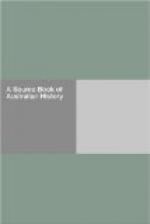On Monday, the members and promotors of the Launceston Association for securing the cessation of transportation, entertained at Public breakfast the gentlemen delegated to represent the interests of the Colony at the Australian Conference, which is about to be held in Melbourne. A cold collation was prepared at the Cornwall, and about 100 gentlemen sat down, amongst whom were many magistrates and gentlemen representing the most influential and respectable portions of the northern and midland districts. Breakfast being concluded, the Chairman rose, and said, it was a matter of pleasure to him to meet so large and respectable a body of gentlemen, some of whom he had known for a quarter of a century. They had not assembled to petition; it was a truth deplorable and sad that petitions had hitherto been unavailing and they were now met to force from Her Majesty’s Government, relief from an evil of which history presented no parallel. (Hear, hear.) Petition after petition had been transmitted home, but the prayers of the Community had been constantly rejected. It now remained to try other means.
The Rev. J. West rose and said he felt some embarrassment in addressing that meeting. He, however, felt grateful for their recognition of his appointment, and should rely on their indulgence during the few moments he might address them. The colonists had been led up to a position from which it was impossible to recede. Van Diemen’s Land must obtain a share in the general freedom, or for ever sink. They had petitioned for a cessation of transportation; whilst there was a possibility of the other colonies receiving a portion of the convicts annually sent from Britain, they expected by the more general distribution to experience some relief. But the resistance of the other colonies had removed the faint anticipation, and shut up to us this last hope—to our union with them. When it was proposed to solicit the co-operation of the adjacent colonies, some persons prophesied a failure; it was thought by some, improbable that the colonies would feel any interest in our fate. But the heart of an Englishman is ever susceptible of pity; and when we spoke of our wrongs they listened; and when we exposed the enormous danger, they consulted their own safety, and came forward to our help. Let us look well to our position. We have to change the policy and contend against the power of a mighty Empire. In the effervescence and excitement of public speaking it was not at all surprising that a threat should sometimes be uttered; but many years must elapse before an appeal to physical force would bear even the semblance of reason. We have, then a mighty Empire to contend against—one which can laugh our threatening to scorn. And what are the weapons we must employ? What, but the weapons of truth? We must diffuse right information; we must expose our wrongs—and we must appeal to the justice of the British Nation. Let the evils and injuries under which this fair domain of




